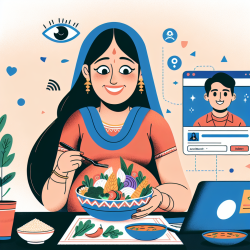Understanding Dietary Barriers During Pregnancy
Pregnancy is a critical period requiring optimal nutrition to ensure the health of both mother and child. However, in Punjab, Pakistan, various barriers prevent pregnant women from achieving adequate dietary intake. A recent qualitative study titled What stops us from eating: a qualitative investigation of dietary barriers during pregnancy in Punjab, Pakistan sheds light on these challenges and offers insights that can help practitioners improve outcomes for pregnant women.
Key Findings from the Study
The study identified three main categories of barriers affecting dietary intake during pregnancy:
- Physiological Barriers: These include food aversions and cravings, often exacerbated by morning sickness. Many women reported aversions to staple foods like bread and curry, leading to a preference for less nutritious options.
- Socio-Cultural Barriers: Cultural beliefs about 'hot' and 'cold' foods significantly influence dietary choices. Pregnant women often avoid protein-rich 'hot' foods, fearing complications such as difficult childbirth or high blood pressure.
- Structural Barriers: Inadequate antenatal counseling and the unaffordability of nutritious foods are significant hurdles. Many women lack awareness of nutritional needs during pregnancy, and economic constraints limit access to healthy food options.
Implications for Practitioners
Practitioners can leverage these findings to enhance their approach to maternal care:
- Enhanced Counseling: Incorporate comprehensive nutritional counseling in antenatal care. Educate women on the importance of a balanced diet and dispel myths surrounding 'hot' and 'cold' foods.
- Cultural Sensitivity: Understand and respect cultural beliefs while gently guiding women towards more nutritious dietary practices. Collaborate with community leaders to promote healthful eating habits.
- Community Engagement: Engage with local communities to address structural barriers. Initiatives like kitchen gardening can improve access to nutritious foods.
Encouraging Further Research
While this study provides valuable insights, further research is needed to explore regional variations and develop targeted interventions. Practitioners are encouraged to contribute to this body of knowledge by conducting localized studies and sharing findings with the broader community.
To read the original research paper, please follow this link: What stops us from eating: a qualitative investigation of dietary barriers during pregnancy in Punjab, Pakistan.










